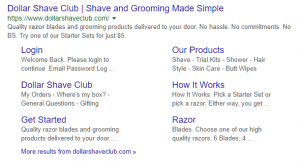Proofread, proofread, proofread. This is one of the most important things you should do before you submit any resume or cover letter. While you may think a minor mistake here or there is no big deal, it can actually speak volumes and make you less attractive than another applicant who is equally as qualified but has no errors in their materials.
Here are just a few of the messages that mistakes can send:
You’re careless. If you were really detail-oriented like your resume claims, you would have caught spelling, grammar, or punctuation errors. Careless mistakes can make it appear as though you rushed to get done and didn’t put much effort into making sure everything was correct.
You don’t care about the impression you make. If you really wanted the job and were serious about making a strong first impression, your resume and cover letter would have been thoroughly proofed.
You’re lacking basic skills. A recruiter could get the impression that you made mistakes because your grasp of basic skills is less than stellar. If you’re unable to write a coherent, error-free document that’s only a page or two long, what will happen when you’re responsible for writing more extensive documents?
Making mistakes on your resume may have a recruiter questioning the type of impression your writing would make on customers, clients, administration, and other key players. They don’t want to be represented as a company that can’t send out professional communications without errors.
How You Can Avoid Careless Mistakes
Don’t be the only one editing your resume. Once you’ve gone over it a few times and think you have everything locked in place, let other people read it. They won’t be as familiar with it as you are, so they’re more likely to pick up on errors. They can also tell you when things don’t sound quite right or aren’t clear.
Another strategy is to read your resume backward. We read left to right, but read right to left. This makes you focus on each word and you can see if it is spelled correctly or is what you actually meant to type. Remember, spell check and grammar check don’t catch everything, especially if you spelled a word correctly but it’s not really the word you wanted. For example: manager vs. manger, addiction vs. addition, or of vs. off. One letter can make a big difference. Too often people are reliant on programs such as spell check/grammar check, which aren’t perfect. Having a human set of eyes looking over your materials and checking for errors can pay off.
Don’t forget to double-check numbers as well. This includes not only metrics, but also basics like your address, phone number, and email address if it has numbers in it. You might not be receiving calls as the phone number you listed isn’t actually yours because you mistyped it. And while a recruiter may not catch mistakes when it comes to revenue, percentages, or staffing, saying 50 instead of 500 can give two different impressions.
Business & Finance Articles on Business 2 Community(85)
Report Post








